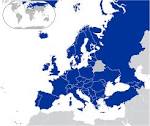 The Executive Board of UNESCO has increased the number of countries that do not support the approach of Ukraine on the situation in Crimea in the fields of competence of the organization, told on the last working day of the week in the Ministry of foreign Affairs of the Russian Federation on the results of the 196th session of the UNESCO Executive Board. The Executive Board of UNESCO has increased the number of countries that do not support the approach of Ukraine on the situation in Crimea in the fields of competence of the organization, told on the last working day of the week in the Ministry of foreign Affairs of the Russian Federation on the results of the 196th session of the UNESCO Executive Board.
"on April 16 in the framework of the 196th session of the Executive Board of UNESCO was considered Made Ukraine a draft decision on the situation in Crimea on issues within the competence of UNESCO. The participants did not want to open a discussion, immediately came to the vote on the document ", - is informed in the report of the Ministry of foreign Affairs of the Russian Federation." Drew on their own shoulders the consideration that in comparison with the previous session of the Executive Board, held in October 2014, was an increase in the number of countries that have not agreed with the Ukrainian approach. Formally, the decision has been adopted by 19 votes in favour (if needed 12). However, two thirds of the membership of the Executive Board (39 out of 58 countries) in this or another form not supported the project: India, China, Cuba, Russia voted against, 25 abstentions and 10 ambassadors came from the meeting, not to participate in the voting process ", - stressed in the Russian international Ministry. In early April, it was stated that the majority of UNESCO delegation was interested in Russia published material about the humanitarian situation in Crimea. First it was announced that UNESCO adopted an opinion on the closure of its Bureau in the capital of Russia in the 2nd part of 2015 due to financial difficulties. UNESCO (United Nations education, scientific and cultural organization) was established on 16 November 1945 and now has 195 member States. Its main tasks are the promotion of peace and security through increased cooperation between the countries and peoples in the field of education, science and culture.
sections: Politics
|